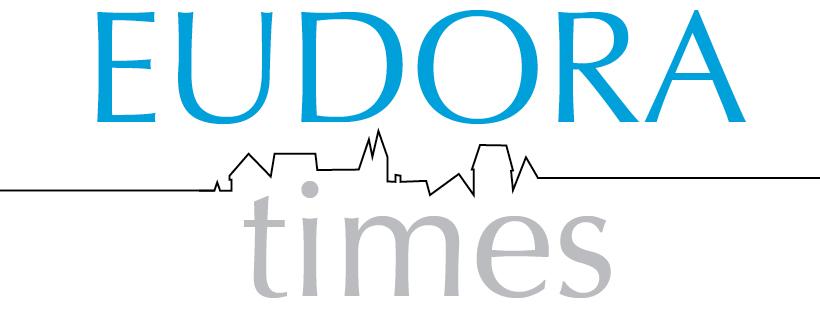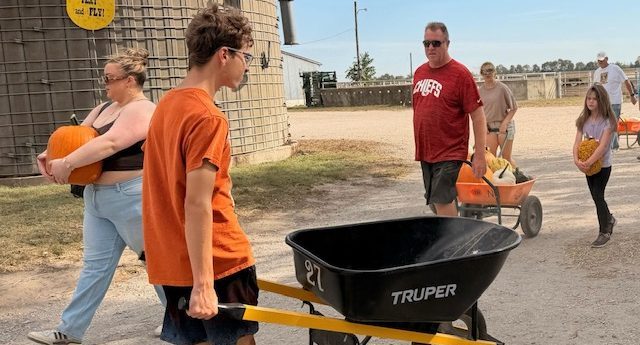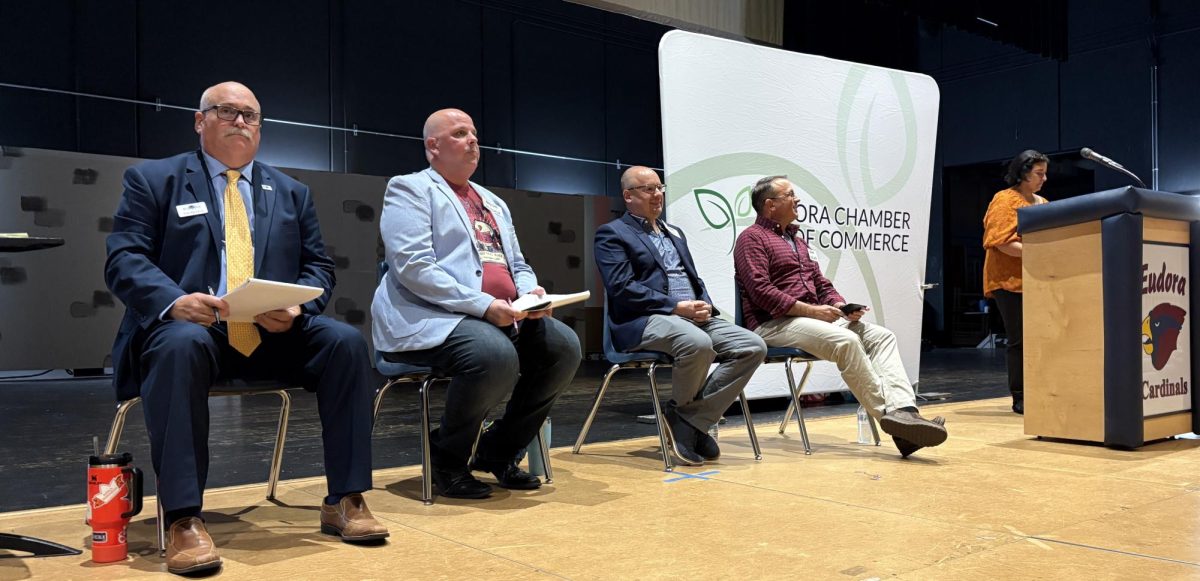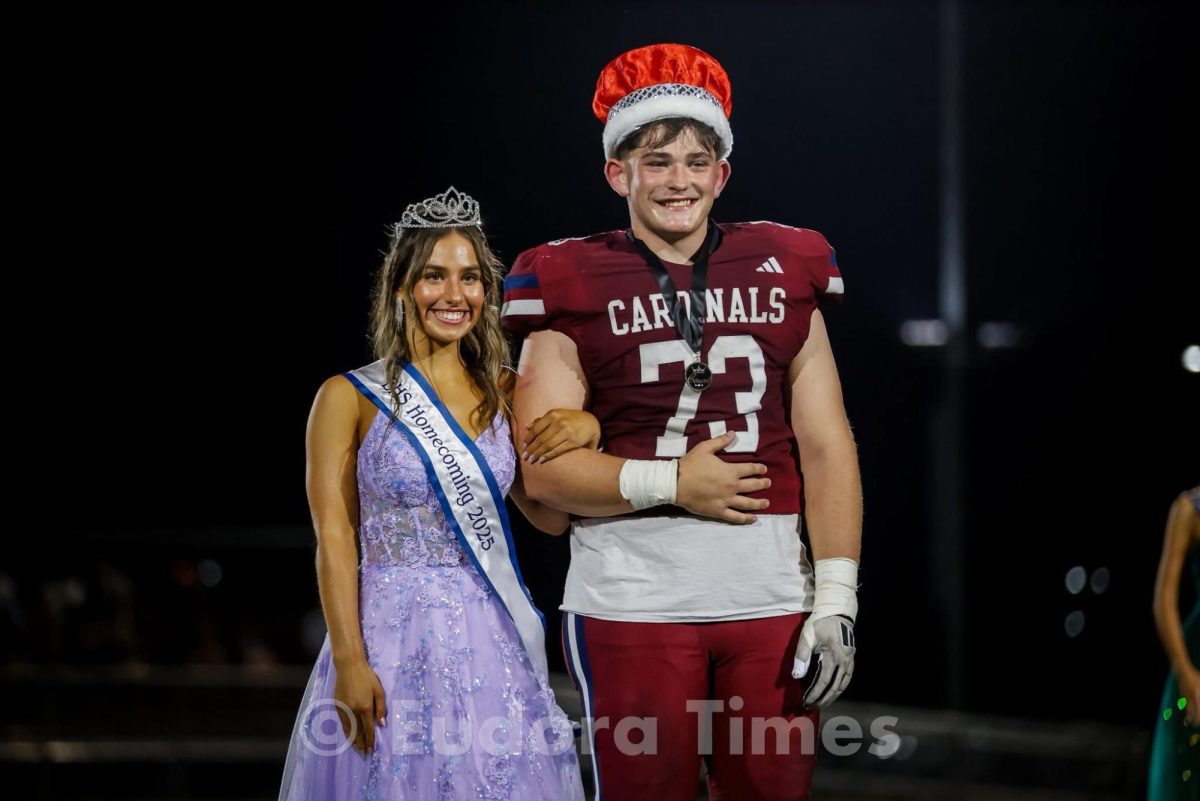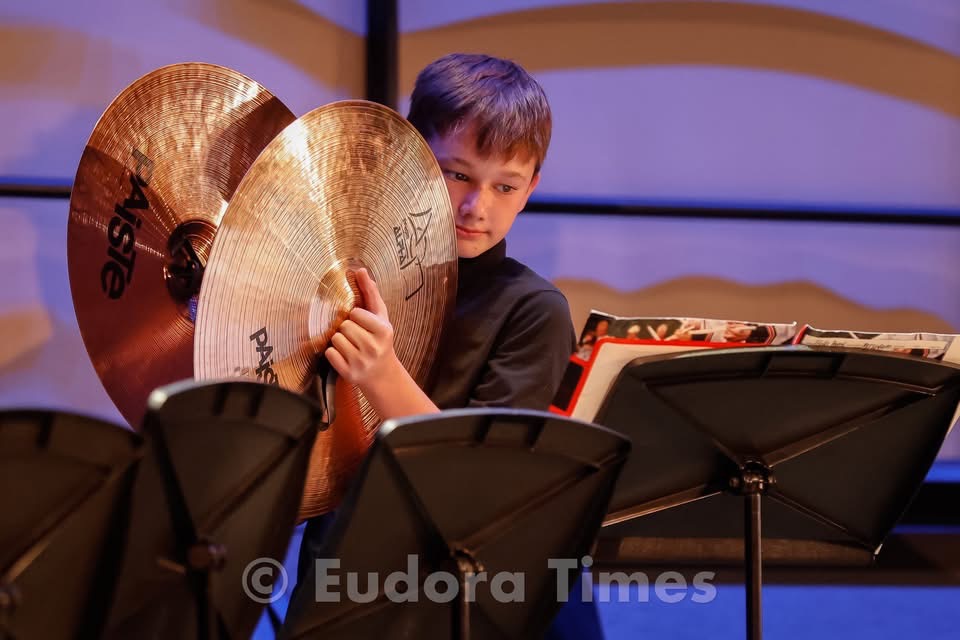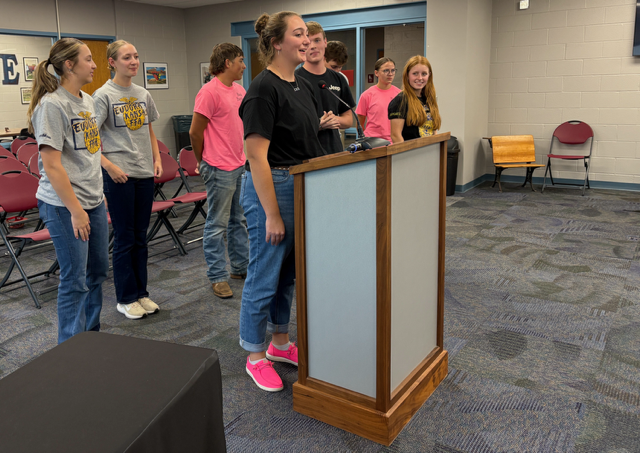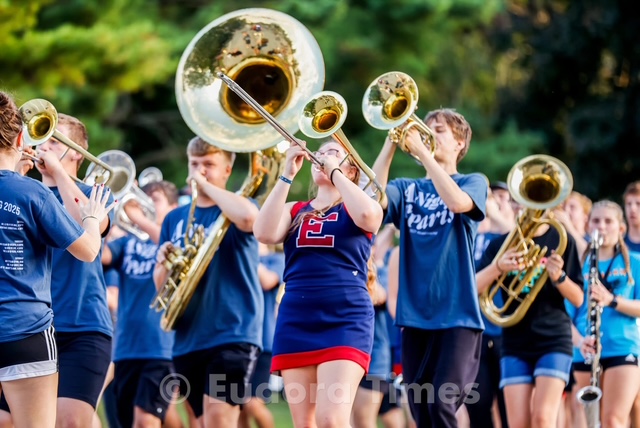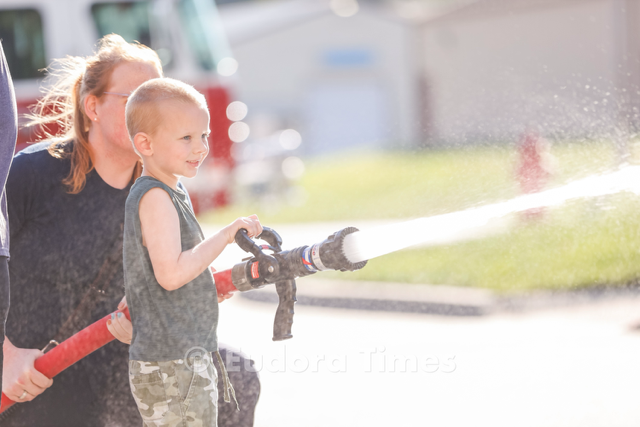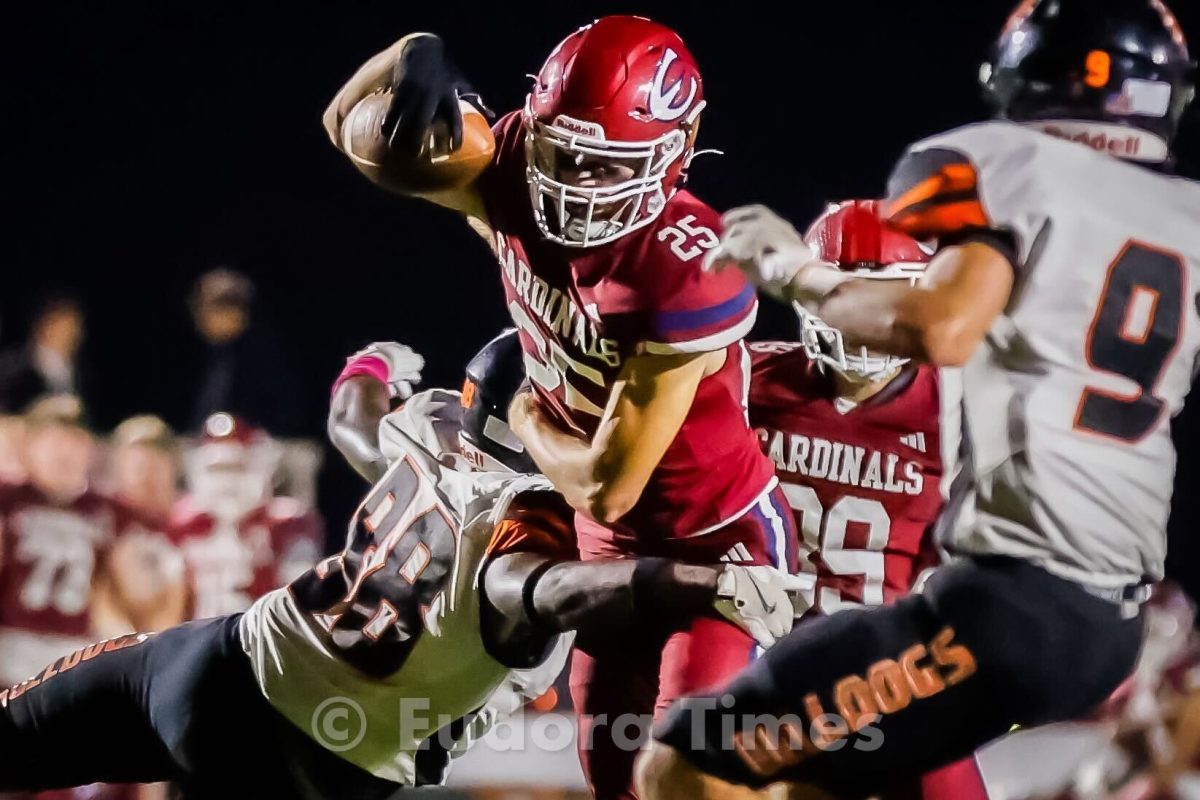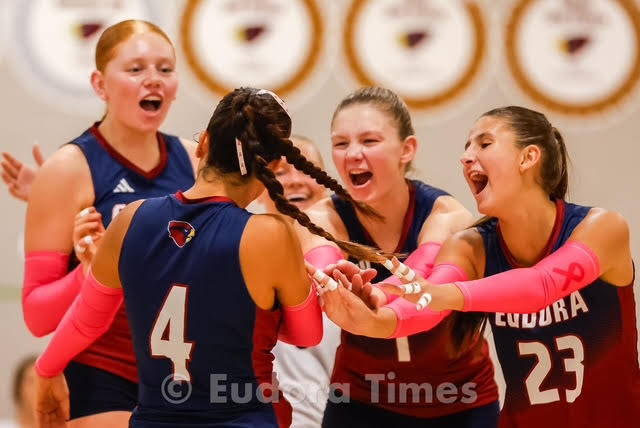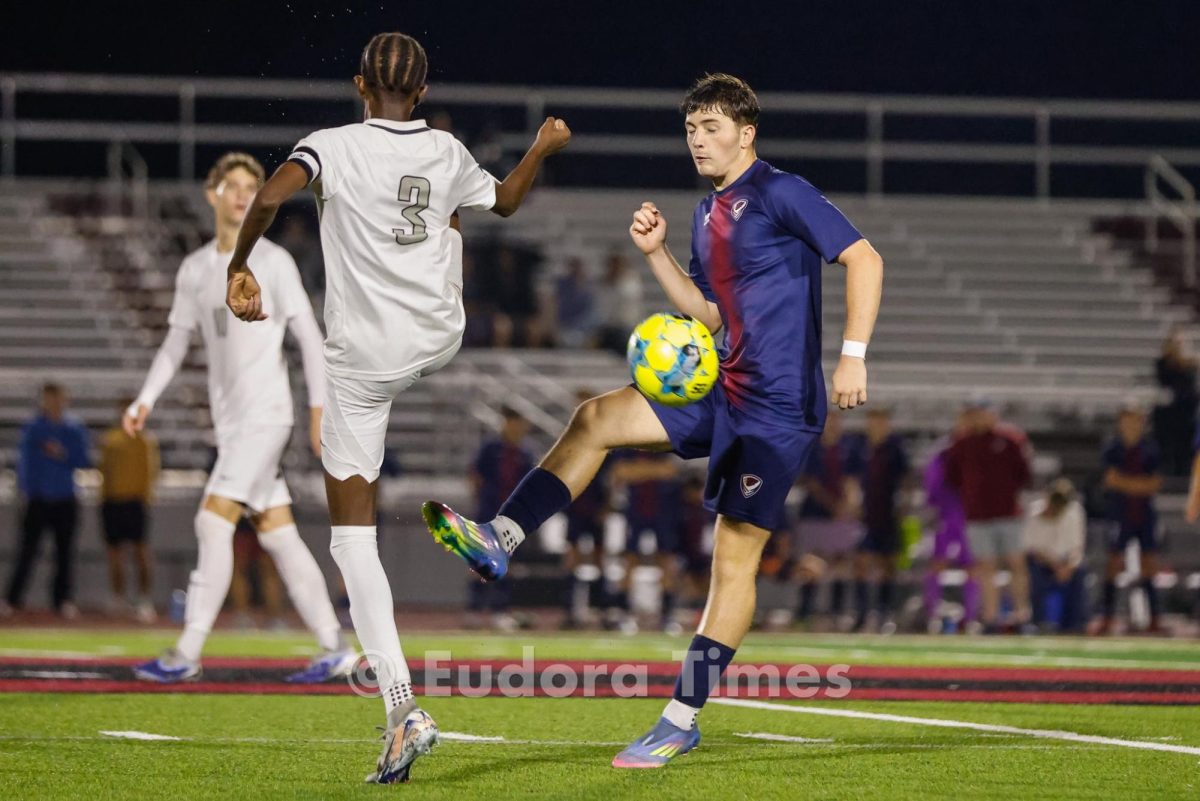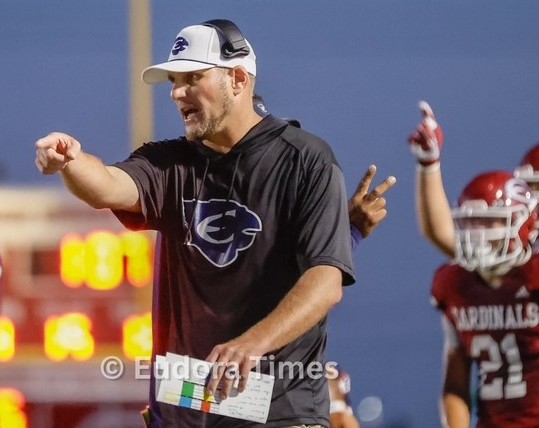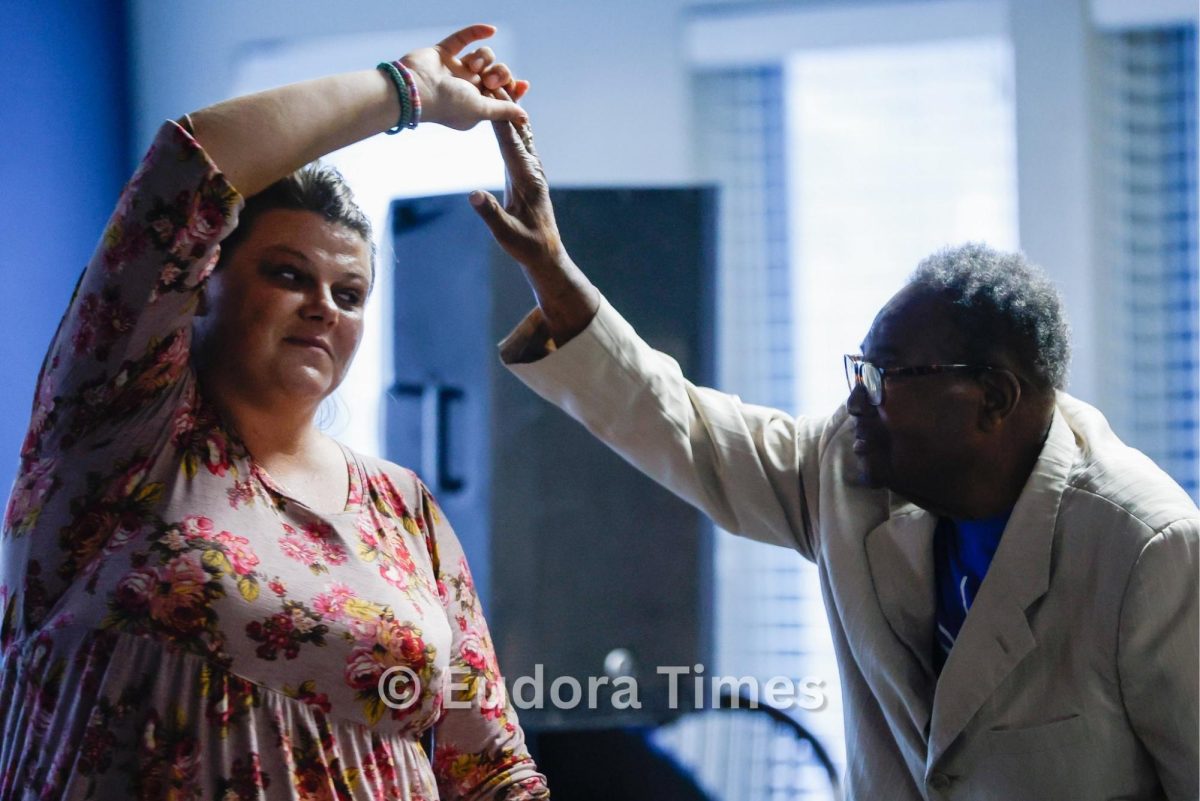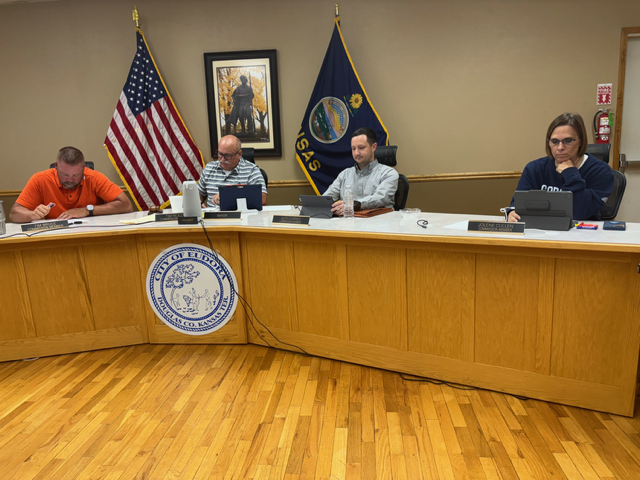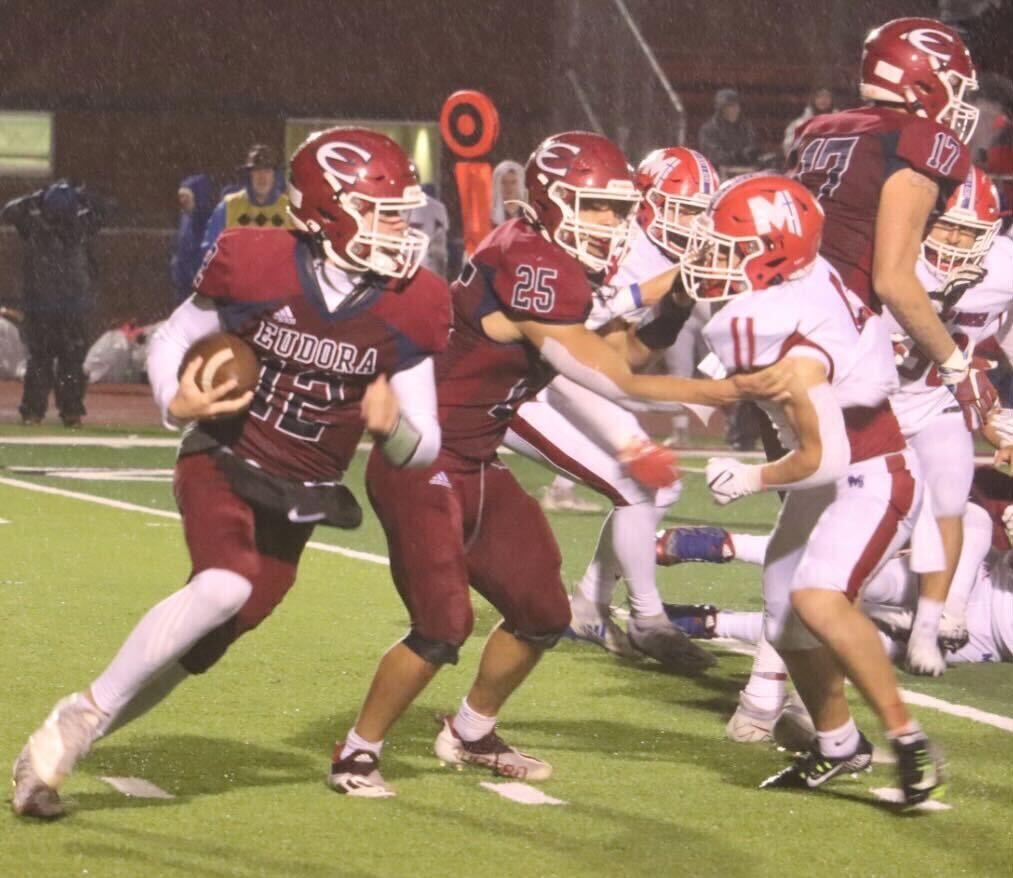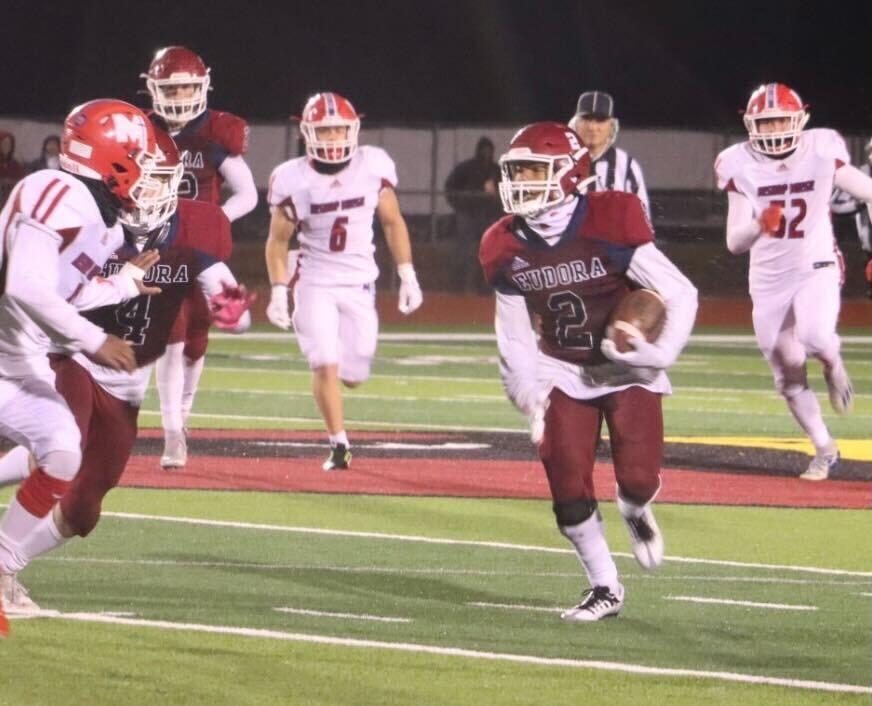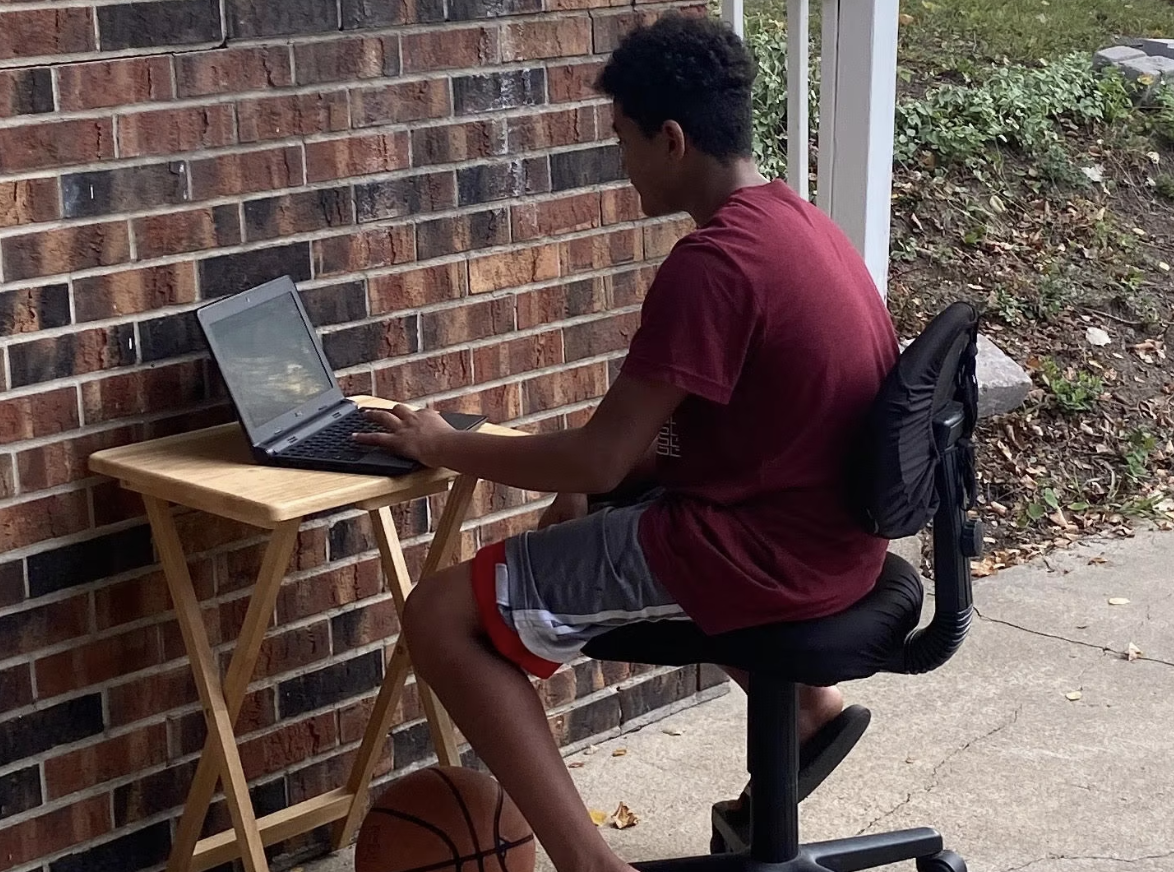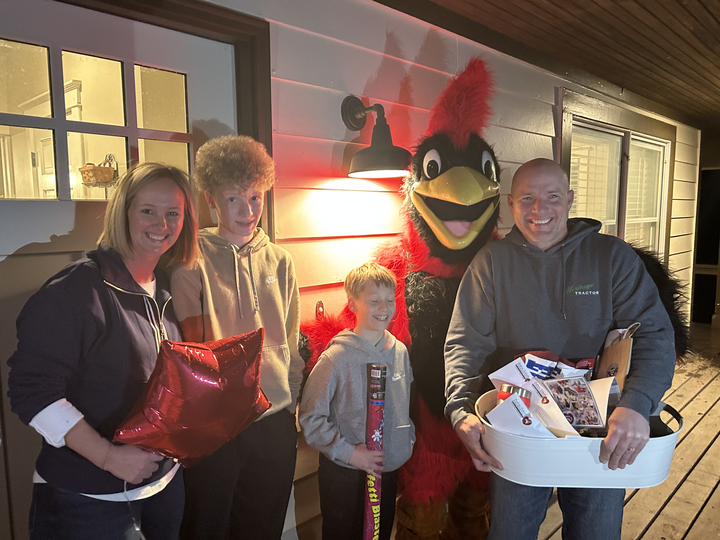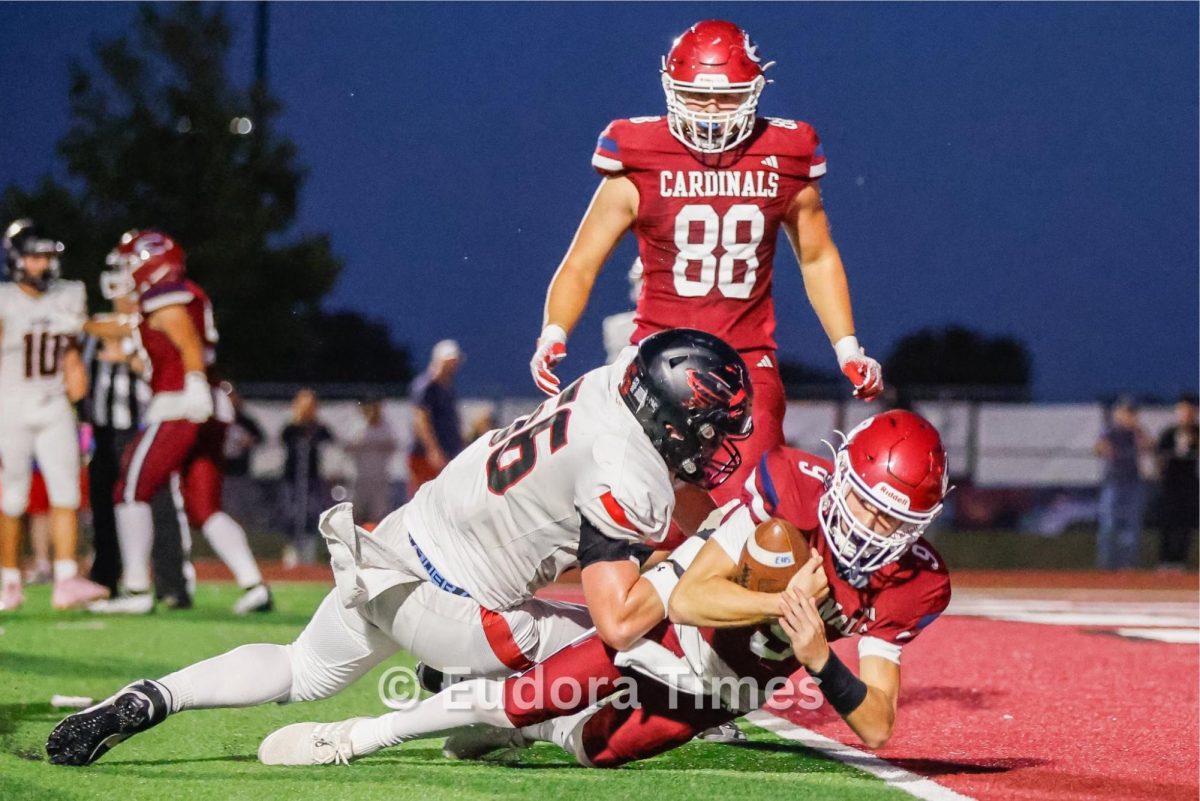The bill that would reclassify certain private schools, including Bishop Miege, has not been voted on by the Kansas House Committee of Education and likely won’t come up again until next year.
Rep. Clarke Sanders, R-Salina, said the committee chairman, Rep. Adam Thomas, R-Olathe, elected to not bring House Bill 2003 to a vote, which ultimately killed the bill for this session.
Bill Faflick, executive director of the Kansas State High School Activities Association, said in his discussions with Thomas that Thomas felt there wasn’t enough support from the committee to bring it to a vote this year.
Repeated attempts to reach Adam Thomas for comment on the bill and why it was not brought to a vote went unreturned.
The Kansas Board of Education approved the bill’s proposal back in September. The bill was then assigned to the House Committee of Education in January and had its first hearing on Jan. 19, but has since stalled.
“We’re providing additional information for the committee, but it may be too late for this year,” Faflick said.
Faflick said the committee’s main concerns center around the language of the bill and how the bill will affect smaller private schools.
The bill would allow KSHSAA to establish a classification system based on student attendance “and other factors.” These factors include things like the number of state championships a school has won, socioeconomic status and geographic location.
But Faflick said the committee is wary of the “other factors” wording and feels it is too vague.
“Just adding three words gives us (KSHSAA) really wide latitude in terms of what considerations might be used in the future,” Faflick said. “I think there was also concern with that.”
Sanders said the wording needs to be reworked to be more specific, using the example of state championships.
“Since the wording of the bill had to do with championships, and not specifying what kind of championships, then if you won X-number of championships, and that could be a combination of golf and tennis and cross country and whatever, then you move up a classification,” Sanders said. “I think that was kind of a roadblock it ran into. So, there would have to be, in my opinion, something that speaks specifically to football and basketball.”
If the bill had come to a vote, Sanders said he would have voted against it for this reason.
Sanders mentioned Sacred Heart High School in Salina and its state championships, saying if the bill were approved, the school would move up a classification. Sanders said this wouldn’t be fair to the football team.
“The football team doesn’t amount to much,” Sanders said. “But the golf team has won five state championships in, like, the last six or seven years. Well, just because the golf team does well doesn’t mean the football team is any good.”
Sacred Heart’s football team has a record of 6-30 over the last four years while the boys golf team has won every 2A six-man championship since 2015, except for 2020 due to the pandemic.
Rep. Linda Featherston, D-Overland Park, said she would have also voted against the bill had it come to a vote because three of the four high schools in her district voted against the bill in a poll of all KSHSAA schools conducted last summer.
The schools in Featherston’s district include St. Thomas Aquinas, Blue Valley Northwest, Olathe East and Shawnee Mission South. Blue Valley Northwest was the only school to vote in favor of the bill.
In the 4A classification, 32 of 36 schools voted in favor of the bill, including Eudora. Bishop Miege voted against the bill.
Featherston said she understands people’s frustration with private schools, but feels the passing of the open enrollment bill last year will help public schools even out the competition.
“I get it that some other schools feel they’re at a disadvantage because other schools are recruiting,” Featherston said. “I think with the advent of open borders for all our public schools, I think it’s probably going to be a moot point. I think there’ll be plenty of recruiting of sorts going on.”
According to the Kansas City Star, the passage of House Bill 2567 last year included an open enrollment provision that will allow students to enroll in any public school district as long as the school has space starting in 2024.
The only rule regarding student-athletes is that a student-athlete can not be admitted nor denied enrollment by a district based on athletic performance.
However, KSHSAA rules state that transfer students can not compete in varsity athletics for one year if the student’s parents did not make a bonafide move into the school district’s boundaries.
Activities director Cara Kimberlin said the open enrollment policy will not affect KSHSAA’s transfer rules.
“The only students that would come into our building that would be living in another school district that year and would be automatically eligible to participate in varsity sports is a freshman,” Kimberlin said.
Sanders said that if he has learned one thing during his time with the committee is that nothing truly dies and the reclassification bill could be back next year.
Faflick said KSHSAA will continue to push the bill forward because that’s what the majority of schools want.
“It’s a process. It took our membership, you know, how many years to get to the point where we were in agreement that this is a process that is best suited to meet the needs of our member schools,” Faflick said. “We want to take feedback and we want to use it and we want to provide information that will be beneficial for the decision makers.”
Eudora Athletics Reacts
Kimberlin said she is not surprised about the progress of the bill.
“I think everybody got their hopes up that this was going to just go through,” she said. “From the place that I sit and the way I see things work, it didn’t surprise me at all that they (the Legislature) dragged their feet and they found a reason not to be moving on.”
Kimberlin said she has confidence in KSHSAA to redraft the bill and work with the school districts to eventually get it passed. However, Kimberlin believes it will continue to be a long process.
“Do I think in the timeframe that I’m probably going to continue to do this job that I will get to witness a change for our kids? Unfortunately, I don’t have real high hopes of that,” Kimberlin said. “I hope I’m wrong. For our community and our kids, I hope I am wrong.”
Kimberlin said the open enrollment policy will not have much effect on athletics because KSHSAA’s transfer rules will still apply to both private and public schools.
This means if a student transfers to either a private or public school without making a bonafide move into the school district’s boundaries, the student still must sit out a year of varsity athletics.
However, Kimberlin said there is a key difference here.
“Private schools don’t have boundaries,” she said. “There is no Bishop Miege school district boundaries, or St. James, or Aquinas.”
Kimberlin said this makes it easier for private schools to take student-athletes from any public school district, which often means they can get the best athletes. This is what irritates public schools and decision makers are not recognizing the inequality, Kimberlin said.
“They’re seeing it through a different lens and they’re not sitting here watching a community of 5,000-6,000 people whose kids work their butts off in every sport they’re in,” Kimberlin said. “And they are kids raised in our community by our families, but they don’t get the opportunity to win a state championship because of schools that go over to Missouri and bring somebody in.”
Cardinals girls basketball head coach Brandon Parker said he is concerned with the possibility of more recruiting between private and public schools occurring under the open enrollment policy.
“I’m hoping it doesn’t become the wild wild west for high school sports. We don’t need transfer portals in high school,” he said. “If a family wants to move and they pack up their belongings and go to a new district, super. But just kind of moving around is just, I don’t know, I’m afraid that’s going to potentially ruin some things that are just kind of pure about high school sports.”
Due to this, Parker said he would rather form a team with players in the community than bring in players from outside the district.
“I want our kids, and not just trying to pick up kids just to get wins,” he said. “That’s what I like about 4A outside some of this is that we’re town teams. You put your team together and you go play and see what happens.”
Bishop Miege won the girls basketball 4A state championship for the fourth year in a row this season. Bishop Miege was the No.8 seed heading into the tournament with a 13-9 record, but beat every team they played in the tournament by at least 14 points.
Parker said this is an example of what schools in 4A want to see changed.
“They’re able to have players that can compete, you know, in a 5A and 6A level, and so when they’re getting those loses and then coming back down to 4A, the results speak for themselves,” Parker said. “What would Miege look like in the 5A or 6A girls tournament?”
On the football field, a private school has won the 4A state championship every year since 2014, with Bishop Miege winning seven in that time span, including this past season.
The Cardinals have lost to Bishop Miege in the postseason in back-to-back seasons, but were the only team that played Bishop Miege to keep the game within one score last season.
Head football coach Drew Steffen said he is not going to put his stock in the bill being passed soon, and he is going to have the football team ready for whoever is next on the schedule.
“If it passes, great, if it doesn’t, we are going to play the teams KSHSAA tells us to play,” Steffen said. “Is it always fair? Probably not. But that’s just kind of life in general. You’re just going to have to go out and do your best.”
Steffen said he tries to schedule events during the summer against 6A teams so the Cardinals can go against the best competition and be prepared when they do see a team like Bishop Miege.
“This summer we’re going to play Olathe South. We’re going to play Olathe Northwest. We’re going to play St. James. We’ll have padded camps,” Steffen said. “So in terms of competition, you know, it is what is. We’re not going to back down from anything. We don’t want something easy.”
Cardinals boys basketball head coach Kyle Deterding had similar feelings toward the bill.
“I’m not going to waste any time kind of worrying about it,” he said. “Whatever gets done, gets done. It’s not going to change the way we do things. Whoever’s here we will do our best with and have fun and work hard and see how the chips fall every time.”
The Cardinals fell to Bishop Miege in the third place game of the boys basketball state tournament this season. Bishop Miege had won the last two state championships.
Deterding said he is hopeful for what the future holds for the bill after seeing how far it has come over the past few years, but recognized that it could take a while.
“My guess is eventually there will probably be something done,” Deterding said. “But who knows if that’ll be one year down the line or five years down the line.”
Kimberlin said the bill is a matter of doing what is right for the student-athletes and coaches.
“I’ll put my coaches up against anybody else’s coaches in the state, and I’ll put my kids up against them,” Kimberlin said. “Our kids work as hard and our coaches work as hard as anybody in the state, and they should be afforded the opportunity to be on an equal playing field to win a state championship.”
Reach reporter Jack Denebeim at [email protected].
If you appreciate our sports coverage, please donate. Our newspaper depends on your donations to provide coverage of Eudora and continue providing local news.
To donate to support our community journalism, please go to this link: tinyurl.com/y4u7stxj
File photo from the Cardinals game against Bishop Miege last season. Senior Octavius Lyles runs the ball during the Cardinals loss to Bishop Miege. The team lost to Bishop Miege in the regional round of the postseason.
